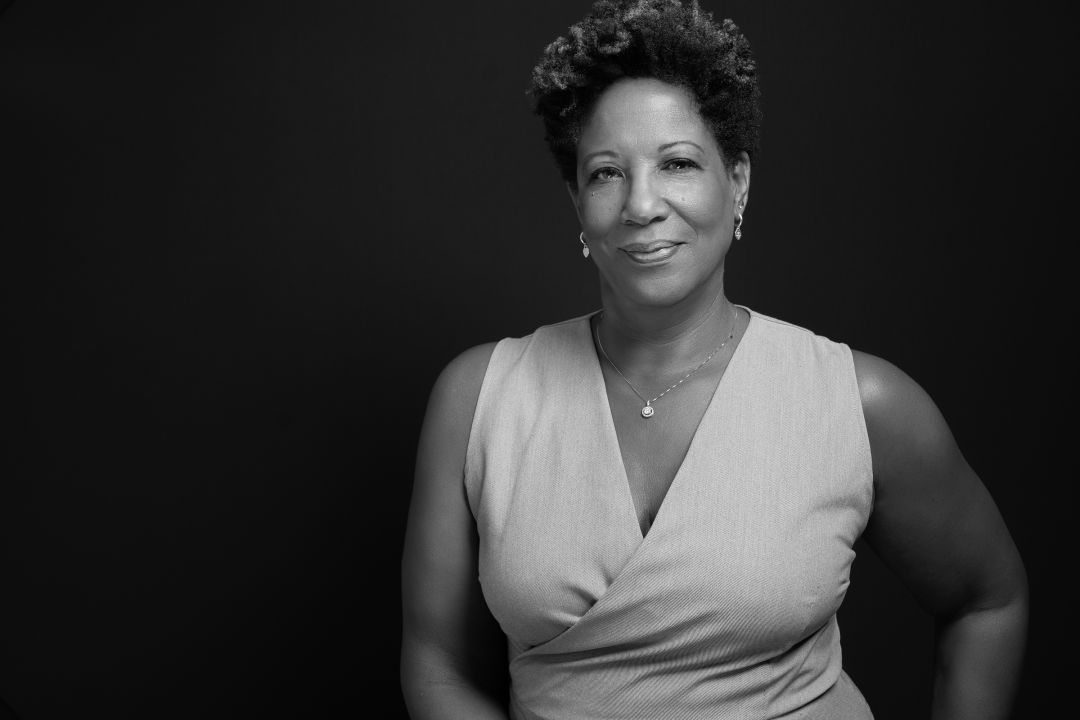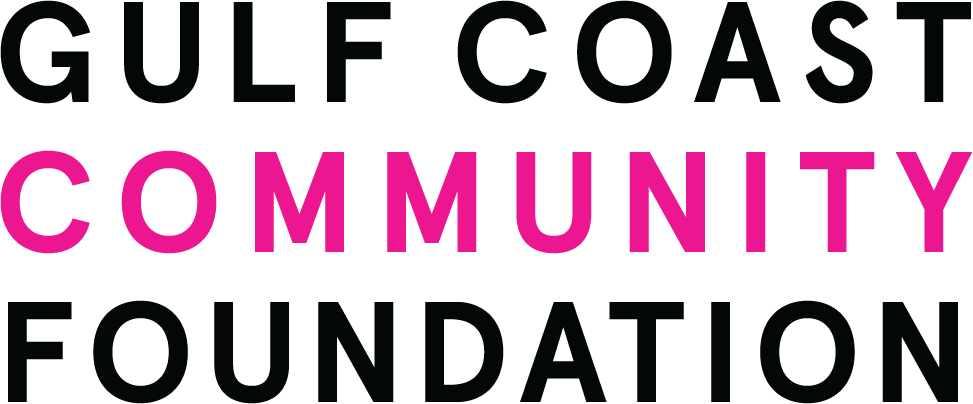Dr. Janet Taylor on Generational Trauma and How Racism Affects Mental Health
This article is part of the series Listening to Diverse Voices, proudly presented by Gulf Coast Community Foundation.

Dr. Janet Taylor
Image: Michael Kinsey
For decades, Dr. Janet Taylor has been on the frontlines of conversations about the emotional and economic impact of mental illness. A psychiatrist, consultant, self-care coach, author, entrepreneur, mother and lifestyle columnist, Taylor is an expert in the neuroscience of implicit bias and conscious allyship.
Frequently featured on Good Morning America, The Today Show and CNN and considered a thought leader in her field, Taylor is also the former host of the Discovery Health/OWN series Facing Trauma, as well as the guest care director for The Jeremy Kyle Show. She is the author of The Courageous Classroom: Creating a Culture of Safety for Students to Learn and Thrive and was the first Black person to sit on PepsiCo’s Health and Wellness Board.
Today, at 60, she is the proprietor of Cognitive Health & Wellness in Sarasota and sees patients at Centerstone of Florida in Bradenton.
Tell us about your childhood.
“I grew up in a middle-class home in the South Side of Chicago. I lived a block away from famed Black pianist and jazz composer Ramsey Lewis and Black writer and historian Lerone Bennett, Jr. My home was not far from Michelle Obama—then Michelle Robinson—and my brother played basketball with her brother Craig. It was a community with educated people and some laborers, but all were focused on raising happy, healthy productive families."
Who instilled your best life lessons?
“My mother comes to mind. She was serious about education and had rules for how you should be present and present yourself in school. For example, her rules were no chewing gum, wearing hats or jackets. To her, school was a place to show respect and it was to be taken seriously.
“I recall one day when I wore a jacket that I loved to school—it was red pleather with white fur. I didn’t take it off at school as told and, of course, my mother showed up unexpectedly. I learned a life lesson that day that has lasted: when people are not around to monitor your actions, you still need to do the right thing.”
Tell us more about your parents.
“Both of my parents are from Lexington, KY. My father, Vertner Lee Taylor, was the first Black person to graduate from the University of Kentucky’s School of Pharmacy. After graduation, no one would hire him, so he moved to Chicago and became the first Black person in pharmaceutical sales with Bristol Meyers Squibb. My mother, Joan Neal Taylor, graduated from Howard University and was an English teacher.”
What was your first experience with racism?
“Even though I attended a diverse school in Chicago, I didn’t realize how insulated I was from racism because I grew up in a predominately Black neighborhood. However, when I’d stay with my grandparents in Kentucky during the summer, it was a different experience.”
How so?
“First, I want to share that one of the reasons I went to medical school was because of my grandfather. In the 1920s, he attended the University of Iowa, where he was studying to become a pharmacist, but he ran out of money and had to drop out. He moved back home to Kentucky, where he was a janitor and my grandmom was a cook. They did those jobs for the rest of their lives. My grandfather was a quiet, proud man. I did not realize the significance of his trajectory on the family until much later.
“I remember going to doctor appointments with my elderly grandparents where a young, white doctor would call them by their first names. To me, that was as painful and disrespectful as being called the n-word. As a young child, I knew it wasn’t right from my interactions in Black neighborhoods, where we respected our elders and referred to them as 'Mister' and 'Missus,' never by their first names. I could see the power differential.
"They never talked about it, and I didn’t ask, but it was palpable and meaningful to me.”
Were you happy to leave Kentucky?
“Once I left, I had no desire to go back—it’s a racist state. At basketball games, not only would they sing 'My Old Kentucky Home,’ which includes the lyrics ‘the darkies are gay,’ but it was up on the scoreboard as well.
“Around seventh grade, at a University of Kentucky basketball game, a Kentucky state representative was sitting next to me. He leaned over and asked me what Abraham Lincoln said after being drunk for seven days. I innocently replied, ‘Oh, what did he say?’ He answered, ‘I freed who?!’
“Even as a child, I knew it was wrong, but it didn’t incapacitate me. If anything, it made me determined to get out of Kentucky and have a profession and live a life I wanted to live.”
Do any other experiences stand out?
“At about age 35, I was flying to Kentucky from my home in Vancouver. On the plane, I sat next to a white woman who engaged me in conversation the whole time. When we got to the airport, we retrieved our bags together, walked outside and a Black cab driver pulled up. Standing right next to me, she said to the driver, ‘Not you. I want a white one.’”
“I looked at her and said, ‘God bless America.’ I had been in Canada for six years at that time and saw the distinction in how Black people were treated. I wasn’t mad at her, but I knew instantly that she didn’t see me for the six-hour trip. Nor did she care about me."
Tell us about some highlights from your work as a psychiatrist.
“Working in New York at Harlem Hospital. I’ve also worked at Rikers and Manatee County jail. I have a passion and sense of purpose for people who do not have access to what they should from a psychiatric standpoint to medical care to housing.
“I am proud that my career has been spent working in underserved communities. What drives me has been shaped by recognizing inequalities and inequities—but not to the point that I feel there’s nothing I can’t do to help. It’s one to one. If I can help one person recognize their value, I will.
“And I never call any of my patients by their first name, no matter their circumstances.”
Talk about the mental health effects of racism on the Black community.
“The main one is racial trauma. But when you think about trauma, it can happen because of the unexpected—like a car accident or being shot when you’re grocery shopping. But trauma can also be intentional. In America, it has been intentional and deliberate through policies and legislative practices.
“The system makes Black people feel like we are responsible for the centuries of inequities that are purposefully designed in every institution, on every level. From housing to education to business, those inequities are baked in there. And although its intent is to target one group, that affects us all.
"Black people are tired, but we will keep pushing on.”
Your book is called The Courageous Classroom: Creating a Culture of Safety for Students to Learn and Thrive. With everything from heated parental influence on education to school shootings, how do we create a culture of safety for students?
“For Black and brown children, education is the only way. Eighty percent of teachers in public schools are white women. It’s not that these teachers can't understand a Black or brown child, but it’s imperative that they do. This book was written for educators. Its goal is to help them understand the trauma and stress within the melting pot that is the learning space, and everything that exists therein—from mental illness to conduct disorder to parental influences that children bring into the classroom.
“Children bring all of these influences to the classroom, where they are expected focus. So, understanding how the brain works and the importance of creating a landscape of calm for children to learn is imperative. So is recognizing that the same structures in the brain that account for fear also account for courage—the amygdala signals both ways. It’s important to note here that a traumatized brain is always looking for the worst case scenario. This must be recognized for a child’s classroom behavior to be understood.”
How so?
“For example, some kids may not be able to sit right down in their chairs when they arrive in class. Allow them to play first or do five jumping jacks. it’s important to identify how they feel, so we can teach them cognitive regulation at three or four years old. Then they will also be able to recognize emotions in others.
“Another important note is that our brain wants us to be safe, but not afraid. This work requires a lot more of educators. In my opinion, just like in medicine, if you’re in environments where people need it the most, and you don’t have it to give, you’re working in the wrong place. That’s how critical it is in education—it’s about caring about creating better citizens.”
In Judge Ketanji Brown Jackson’s speech after her historic nomination to the Supreme Court, she said, “I am the dream and the hope of the slave.” What do those words mean to you?
“I believe in generational trauma, and that we can inherit pain and suffering of our ancestors. With those words, she was stopping that transmission of trauma, then and there. That is the opportunity that we all have. No matter the past, we can stop passing on hate. Instead, we can become beacons of hope and light.
“Enslaved people tried to make life better for those who came behind them. Frederick Douglass taught himself to read and write so that he could teach others. I make sacrifices to do good for people in the community. That’s how we push forward—with the hope that things can always be better.
“When it comes to the attacks at Judge Jackson’s hearings, where she proved that she was over-qualified, it’s clear the issues were with race and gender, with an emphasis on the color of her skin. That’s a constant battle in the Black community. Some see blackness as weapon, some see the falsehood of not being worthy.
“Let’s be clear: 99 percent of all our DNA is the same. We have all descended from Lucy, a Black, African woman. We can’t get around that science.”
What would you like your white friends or acquaintances to be doing right now?
“I want them to be uncomfortably uncomfortable and engage with others who are different from them—from ethnicity to gender orientation to zip code—and have a conversation. You could travel a mile to find someone and both of you would benefit from talking to each other in a different way. Tell each other about your lives without judgement, without labeling. Just listen. Educate yourself. Read a book that you wouldn’t normally read or watch a movie you wouldn’t watch.
“Think about those things, even your own racialized experiences. We all have them. Then let’s get back to civility and leading with our moral compass. That way, when we find ourselves judging, we can confront ourselves to understand the situation in a different way.
“Silence and inaction are damaging. We are not in a position within America and within our communities to be inactive or inattentive. We are in trouble. It’s time to build worthy goals so that we can make the world better."
Listening to Black Voices is a series created by Heather Dunhill




